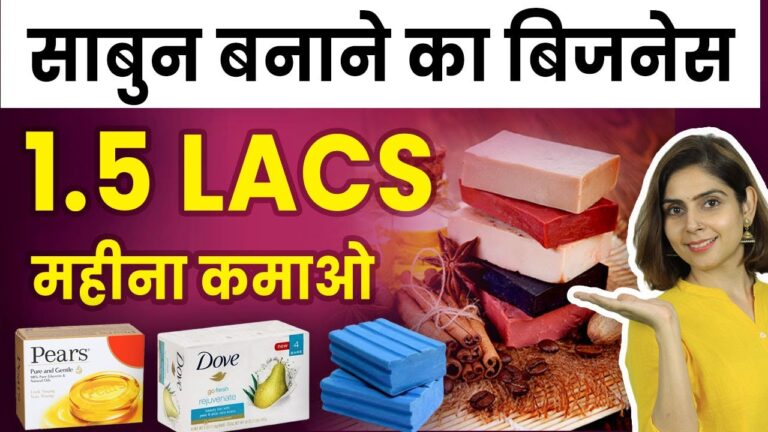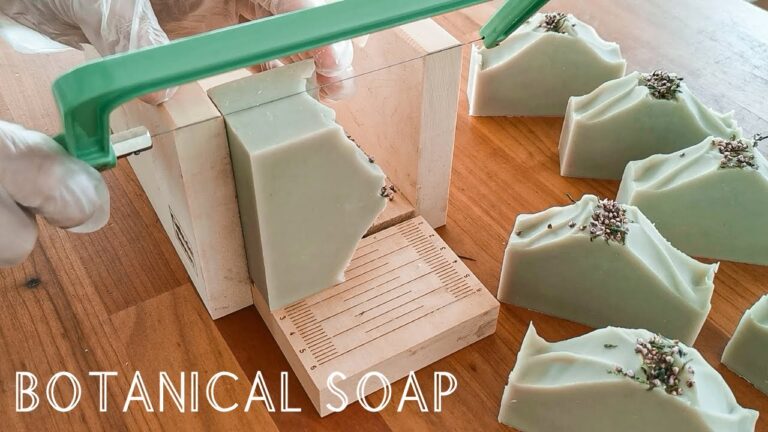Local partnerships in soap making have become increasingly popular as consumers seek out sustainable and ethically sourced products. By collaborating with nearby farms and artisans, soap makers are able to create unique and high-quality products while supporting their local community. These partnerships not only benefit the environment, but also help to stimulate the local economy. In this article, we explore the growing trend of local partnerships in the soap making industry and the positive impact they are having on both producers and consumers alike.
Is soap making a profitable business?
Soap making can indeed be a profitable business. The low cost of materials combined with the high price point for handcrafted soaps means that there is potential for significant profit margins. Additionally, the ability to start small and gradually expand the business allows for manageable growth and increased profitability over time.
The profitability of soap making lies in the demand for high-quality, artisanal products. Consumers are willing to pay a premium for handcrafted soaps, making it a lucrative venture for entrepreneurs. With the right marketing and branding, a soap making business can attract a loyal customer base and generate consistent profits.
In conclusion, the profitability of soap making is evident in the relatively low cost of materials and the high price point for handcrafted soaps. With the ability to start small and scale up, entrepreneurs have the opportunity to build a profitable business in the soap making industry.
Is there a demand for handmade soap?
Yes, there is a growing market for homemade soap as consumers are becoming more conscious of the ingredients in their skincare products. People are increasingly seeking out natural and organic alternatives to traditional soaps that may contain harsh chemicals. Homemade soap makers have the opportunity to cater to this demand by creating unique and personalized products that appeal to eco-conscious consumers.
By using high-quality ingredients and experimenting with different scents and textures, homemade soap makers can differentiate themselves in a competitive market. The artisanal nature of homemade soap also adds a personal touch that resonates with consumers looking for a more intimate and thoughtful skincare experience. With the right marketing strategy, homemade soap makers can attract a loyal customer base and stand out in a crowded marketplace.
In addition to the potential for profitability, creating homemade soap can also be a fulfilling and creative endeavor for individuals looking to express their artistic talents. The process of making soap allows for endless possibilities for customization and innovation, making it a rewarding hobby or small business venture. With the right combination of passion, skill, and marketing savvy, homemade soap makers can tap into a growing market and carve out a niche for themselves in the beauty industry.
How competitive is the soap industry?
The soap industry is highly competitive, with numerous brands vying for market share and consumer loyalty. From major multinational companies to small, artisanal producers, the market is crowded with a wide variety of options for consumers to choose from. This competition drives innovation and quality, as companies strive to differentiate themselves and attract customers in a crowded marketplace. With the increasing emphasis on natural and sustainable products, the competition in the soap industry shows no signs of slowing down.
In such a competitive landscape, soap companies must continually strive to stand out and meet the evolving needs of consumers. This means staying ahead of trends, investing in research and development, and maintaining a strong brand identity. With so many options available, consumers are looking for high-quality, innovative products that align with their values. As a result, the soap industry remains fiercely competitive, pushing companies to constantly improve and differentiate themselves in order to succeed.
Collaborating for Change: Local Partnerships in Sustainable Soap Making
In a world where sustainability is becoming increasingly important, local partnerships are key in creating lasting change. By collaborating with community organizations, businesses can work together to create sustainable soap making practices that benefit both the environment and the local economy. These partnerships allow for the sharing of resources, knowledge, and expertise, ultimately leading to a stronger and more resilient soap making industry.
One of the main advantages of local partnerships in sustainable soap making is the ability to support and empower small businesses within the community. By working together, businesses can pool their resources and skills to create a more environmentally friendly and socially responsible product. This not only benefits the local economy but also helps to build a sense of community pride and connection.
By fostering local partnerships in sustainable soap making, businesses can also make a positive impact on the environment. By using locally sourced ingredients, reducing waste, and implementing eco-friendly practices, these partnerships can help to minimize the industry’s carbon footprint and promote a more sustainable way of producing soap. Through collaboration and innovation, local partnerships can pave the way for a more environmentally conscious and socially responsible soap making industry.
Empowering Communities: The Power of Local Partnerships in Soap Production
Local partnerships in soap production have the power to transform communities, providing economic opportunities and promoting sustainable living. By working together with local businesses, farmers, and artisans, soap production can not only create jobs and income, but also promote the use of natural and locally sourced ingredients, reducing environmental impact. These partnerships empower communities to take control of their economic future while promoting environmental stewardship, making soap production a powerful tool for community development and sustainability.
Building Bridges: Local Partnerships for a Cleaner Future in Soap Making
In the world of soap making, local partnerships play a crucial role in paving the way for a cleaner and more sustainable future. By collaborating with nearby businesses, suppliers, and organizations, soap makers can reduce their carbon footprint and environmental impact. This not only benefits the planet, but also strengthens the community by fostering relationships and supporting local economies.
One way soap makers can build bridges with local partners is by sourcing ingredients and materials from nearby suppliers. By choosing local suppliers, soap makers can reduce transportation emissions and support small businesses in their community. Additionally, working closely with suppliers can lead to more sustainable practices, such as using organic or ethically sourced ingredients, further promoting a cleaner future for the industry.
Furthermore, forming partnerships with local organizations and non-profits can help soap makers give back to their community and support environmental initiatives. By collaborating on projects such as beach cleanups, tree plantings, or educational workshops, soap makers can raise awareness about sustainability and inspire others to make eco-friendly choices. These partnerships not only benefit the environment, but also help build a stronger, more connected community dedicated to creating a cleaner future for all.
Creating Impact: How Local Partnerships are Revolutionizing the Soap Making Industry
Local partnerships are revolutionizing the soap making industry by creating impactful changes in the way products are made and distributed. These partnerships bring together local businesses, suppliers, and communities to collaborate and innovate, leading to more sustainable and ethical practices. By working together, these partnerships are able to support each other, share resources, and create a positive impact on the environment and the local economy. Through these collaborations, the soap making industry is being transformed, paving the way for a more responsible and socially conscious approach to production and distribution.
By fostering local partnerships in the soap making industry, communities can not only benefit from sustainable economic growth and job creation, but also contribute to social and environmental sustainability. By supporting local artisans and businesses, consumers can play a vital role in preserving traditional craftsmanship while reducing their carbon footprint. Through collaboration and support, the soap making industry can thrive, creating a positive impact on both a local and global scale.



